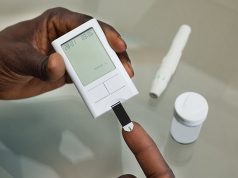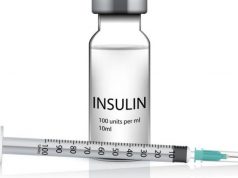No significant association remained after adjustment for baseline covariates
MONDAY, Oct. 19, 2015 (HealthDay News) — In the Action to Control Cardiovascular Risk in Diabetes (ACCORD) trial, insulin dose is not associated with cardiovascular (CV) death after adjustment for baseline covariates, according to a study published online Oct. 13 in Diabetes Care.
Elias S. Siraj, M.D., from the Temple University School of Medicine in Philadelphia, and colleagues examined insulin exposure data for 10,163 participants from the ACCORD trial with a mean follow-up of five years. Correlations between CV mortality and total, basal, and prandial insulin were explored over time.
The researchers found that more participants allocated to intensive treatment versus standard treatment were ever prescribed insulin in ACCORD (79 versus 62 percent), with a higher mean updated total daily dose (0.41 versus 0.30 units/kg; P < 0.001). Higher insulin dose correlated with increased CV risk before adjustment for covariates (hazard ratios per 1 unit/kg/day, 1.83, 2.29, and 3.36 for total, basal, and prandial insulin, respectively). No significant association of insulin dose with CV death remained after adjustment for baseline covariates. This observation was not altered after further adjustment for severe hypoglycemia, weight change, attained hemoglobin A1c, and randomized treatment assignment.
“These analyses provide no support for the hypothesis that insulin dose contributed to CV mortality in ACCORD,” the authors write.
Several authors disclosed financial ties to pharmaceutical companies, several of which provided study medication, equipment, or supplies.
Abstract
Full Text (subscription or payment may be required)
Copyright © 2015 HealthDay. All rights reserved.








